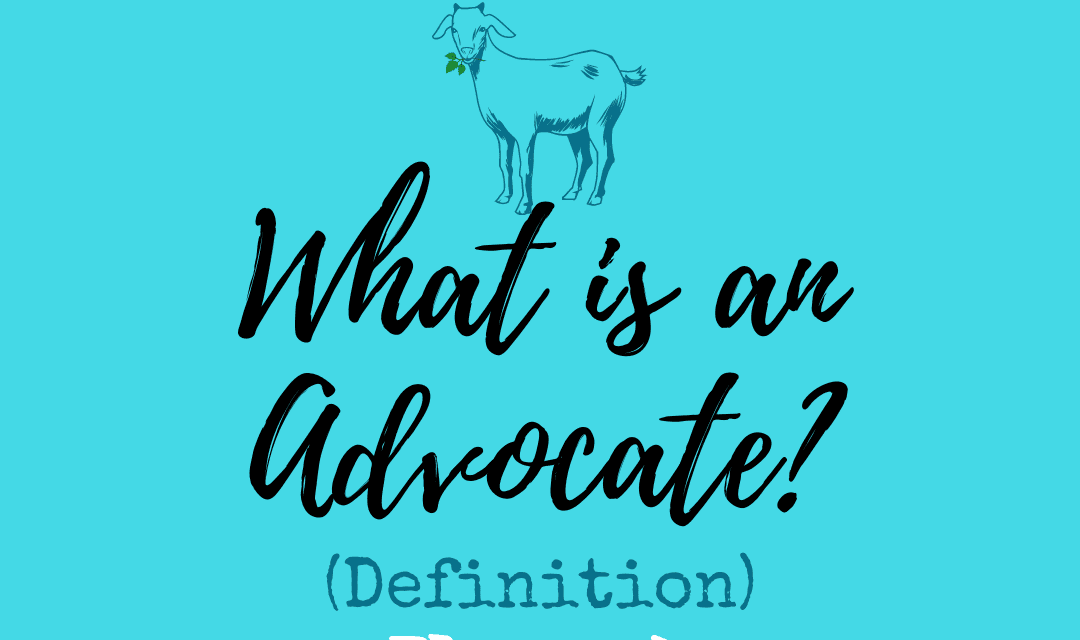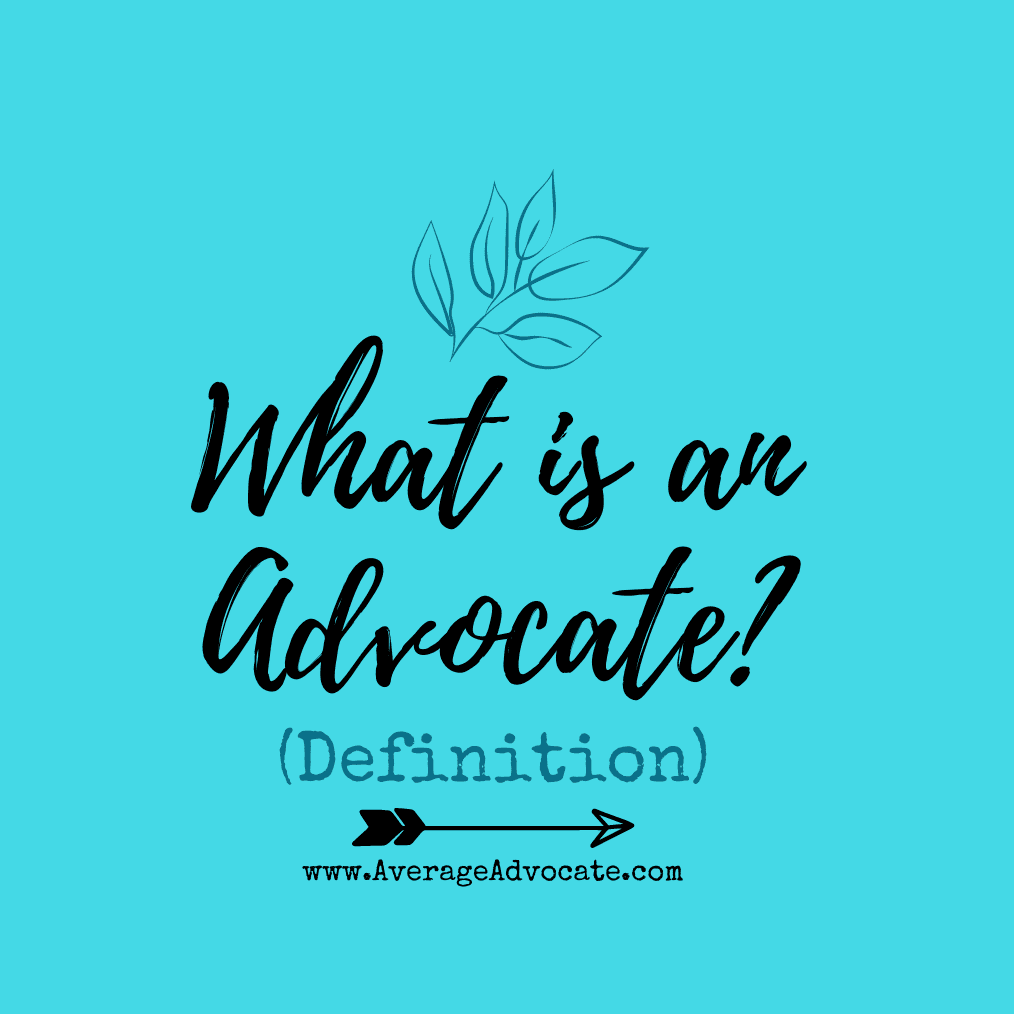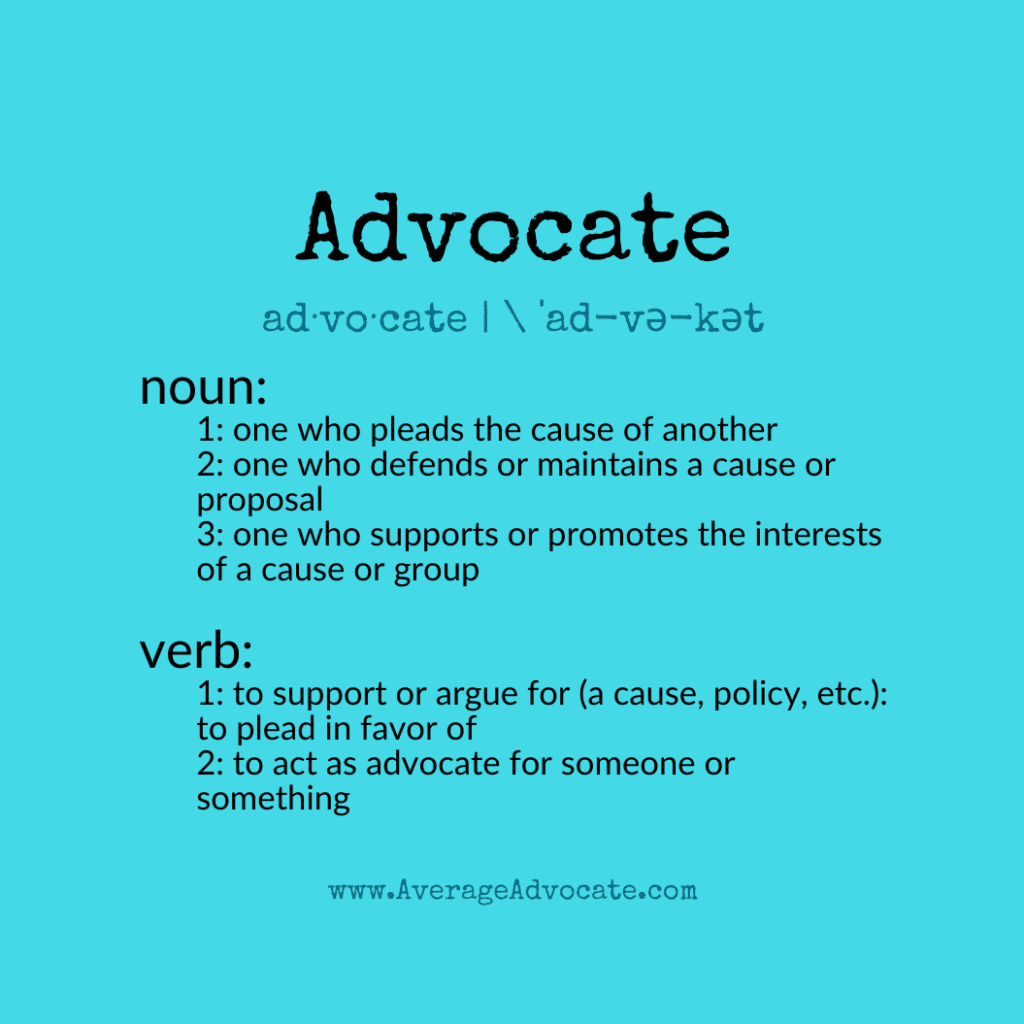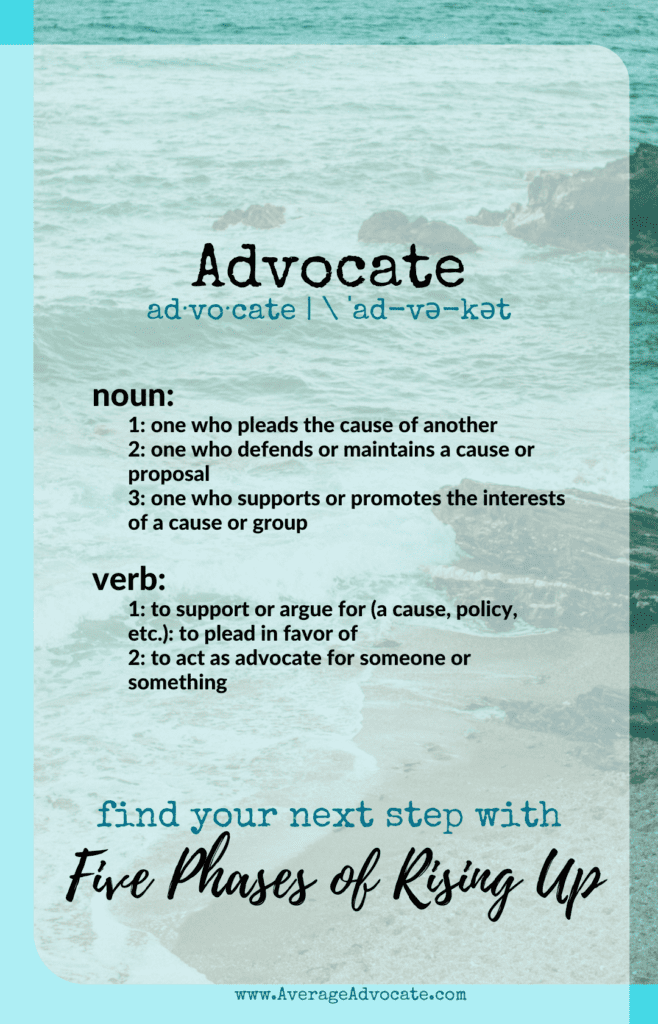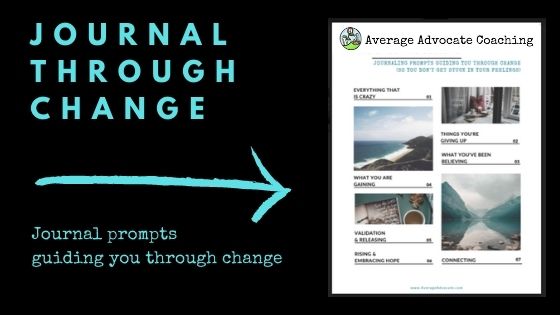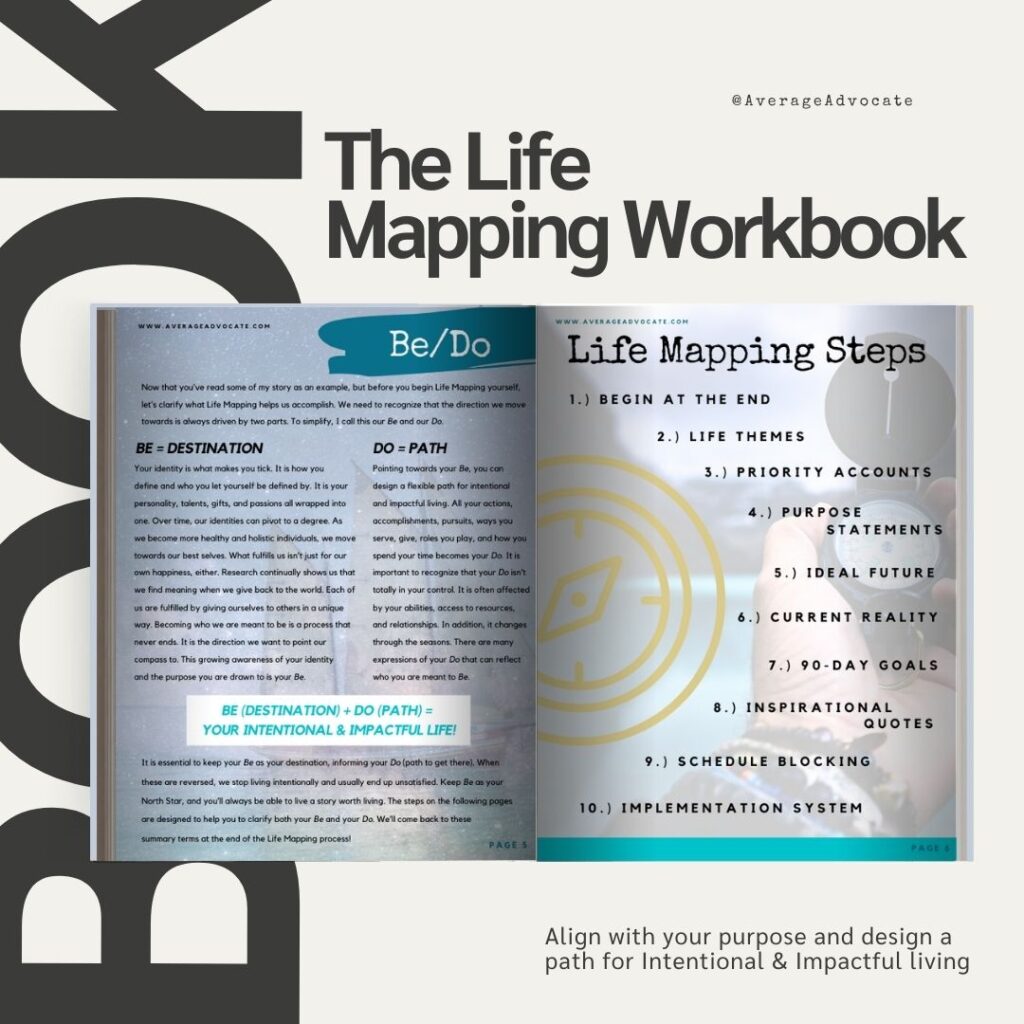Have I ever told you why I named this blog Average Advocate? Turns out, this title isn’t always self-explanatory. My blog has been called “Average Avocado” from stage, as if it was about eating clean and organic produce! It can easily be confused with “Average Activist,” which would have a different contention to many people. So before we get to why I named it Average Advocate, let’s start by answering “what is an advocate?”
What is an Advocate?
According the Merriam-Webster (in my opinion, the dictionary of all dictionaries), an advocate is:
- one who pleads the cause of another
- one who defends or maintains a cause or proposal
- one who supports or promotes the interests of a cause or group
Then, used as a verb, to advocate, means the following:
- to support or argue for (a cause, policy, etc.) : to plead in favor of
- to act as advocate for someone or something
Is an Advocate Political?
Over the years I’ve realized the population often views advocacy as a political or legal term (as it can be). But honestly, the definition doesn’t require any formalities or existence inside of any particular social systems. My guess is that most people either don’t recognize everyday (or average) advocacy or have only heard the term used in formal contexts.
Is an Advocate an Activist?
It is also important to note that the term advocate is different than activist, even though an activist is also an advocate. An activist (according to Merriam-Webster) “uses or supports strong actions (such as public protests) in support of or opposition to one side of a controversial issue.”
In other words, activists tend to be bigger, louder and more controversial.
There also tends to be more negativity associated with being an “activist”, simply because at some point or another we will all experience what it is like to be on the other side of an activist’s agenda. That is an uncomfortable space to be in. Again, however, we are often unaware of how strongly we might be in support or oppose (sometimes in loud ways) something. So even if we wouldn’t define ourselves as an activist, others would consider us obviously activists for that something (think: your faith). However, once someone recognizes themselves as an activist, they tend to wear their label proudly.
I myself tend to use different labels depending on who I am talking to and what social issue I am talking about. After all, branding is an important part of being received! (Check out any of the Art of Advocacy posts or “What Is Social Justice” to go deeper into this.)
The Who and Why of an Advocate
As you can see, an advocate isn’t as much as a what as it is a who. For whether one is intentionally an advocate or occasionally practices advocacy (even unknowingly), it is always a person. This person has become an advocate because of how they are acting and what they are in favor of. Even though some advocates are voted in or paid to represent, defend, support, or plead a cause, we all know the ones who really do it well are those who believe in it.
For example, that is why with Blackout Trafficking we always ask people to start with their their why, or belief statement. Not only does it help them find like-minded people to work together with, but it also reminds advocates who they are. In this case, at Blackout Trafficking, our advocates are those who share our belief that everyone deserves a chance to be free. It some point, what we advocate for becomes part of our identity.
Defining “Average Advocate” at Average Advocate
Ready for how I define advocate? Or more specifically, how we define an “average advocate” at AverageAdvocate.com? An average advocate is:
An everyday person who cares about something enough that their words/actions begin to create external, even if minimal, change.
-Elisa Johnston
Why do I define it like this? I’ve seen it time and time again: everyday people don’t usually view themselves as advocates. At least, not from the get-go (unless they already self-define as activists, but that is less common, and again, it is usually a process to get there). In case you’ve missed it, in the Five Phases of Rising Up I guide you through this process (you should be able to download your free copy at the beginning of this blog post).
Ultimately, most people don’t realize their influence at first. But as they begin to believe something matters, the overflow is action (or words that affect people). Either way, the result is external change. Their initial goal might not be to make a difference. But somewhere along the way of advocating for something that matters to them, they begin to want to make a difference. And they get better at it.
An Example of an Average Advocate
My friend is an advocate. She might not have called herself one at first, but looking back, now she sees that she has become one.
Her is a little of her story:
Years ago my friend realized her son was struggling at home and in school. She had to bring her son to different doctors, navigating the health-care system and pushing forward for the right diagnoses. Turns out her son had a learning disability and a mental health disorder. My friend had ro follow-up to make sure her so was on the right medication, medicine that would actually help him, not just be a band-aid or hurt him. She realized she had to make a case to get him an IEP in the school, and the right interventions.
By being proactive on her son’s behalf, she made a difference for her own child to get the care he would need to thrive both in childhood and now, in adulthood. And, even without initially meaning to, she helped change the system. She influenced those working for her school district, helping them understand what children with the same struggles needed. My friend has also encouraged many parents through their similar process and taught them to advocate for their own children.
This everyday ordinary woman made a difference not just in her own home, but externally, affecting and shifting the world around her to be more just. And that my friends, is an average everyday advocate.
Questions to Answer
1.) Have you ever thought of yourself as an advocate? Why/why not?
2.) If you already do, do you remember when you first realized you were?
3.) Even if you didn’t use the word “advocate”, when did you start noticing you were supporting a cause and what cause was it?

